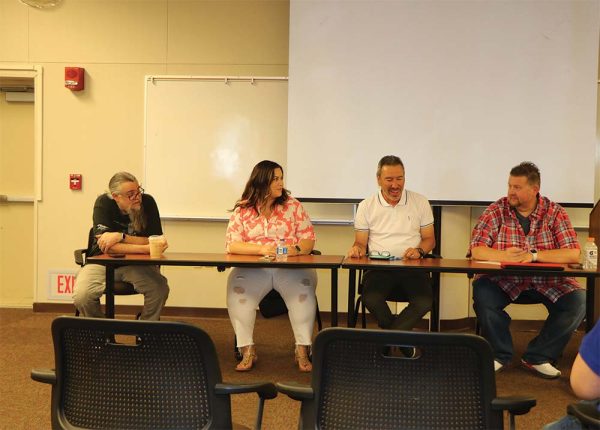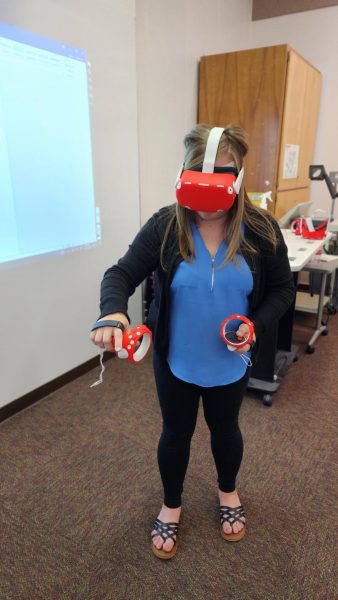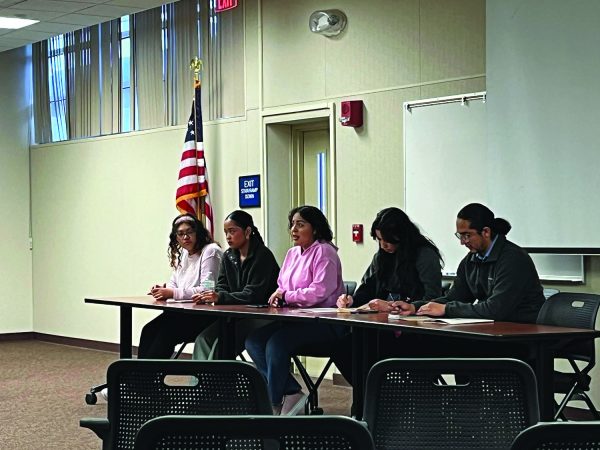Deep Cuts and Conversation
March 11, 2022
Reggie Williams, Professor of Philosophy, Josh Ottum, Professor of Commercial Music, and Kris Tiner, Professor of Jazz, put on their second installment of Deep Cuts and Conversation on March 9 via zoom.
The professors got together three years ago with the idea of playing a few tunes and discuss them. The participants were able to pick the song/theme. The song that a participant picked was called “Amsterdam After Dark” by George Coleman. The song was released in 1979 and starts with a piano and then a tenor saxophone. The song’s tempo was fast, and the tone seemed chill. While the song was playing I felt like it was a good piece of background music to be working on homework from classes since there were no lyrics to it. After the song was done, they talked about time signature changes. For those who do not know what time signature changes, it is specified as to how many beats (pulses) are contained in each measure (bar) and which note value is equivalent to a beat.
After the song was done, the professors talked about musicians. One musician they spoke about is Daniel Johnson. They discussed how he is one musician that does not sing on key. I thought that this was interesting because I thought all musicians were supposed to sing in key. They also said that art comes from limitations and ideas. The professors’ second song was “Arpeggios From Hell” by Yngwie Malmsteen. The song was released in 2010 and starts with drums and then a bass guitar. The song’s tempo was fast, and the tone was intense. While the song was playing, I didn’t feel much of anything because heavy metal is not my type of music. After the song was done, they talked about how some music doesn’t move certain kinds of people. They also asked those who don’t feel moved about the song, was it because of the speed or was there other musicians that are just as fast as Arpeggios From Hell but those other songs move you more.
One student asked if there are certain songs that you should be listening to. The professors responded by saying that there are two kinds of music, the good kind, and the bad kind, but this is based upon your preference of what the good and bad kind of music is. Overall, I enjoyed the songs that the professors put on and the discussions.










